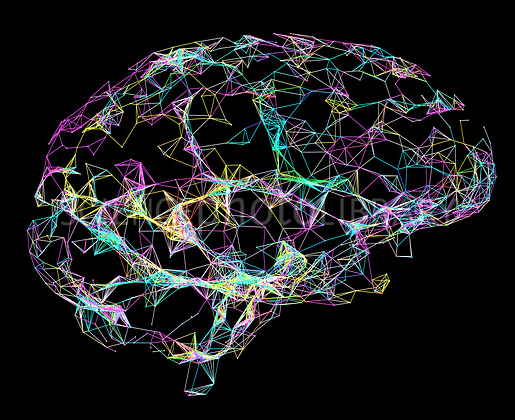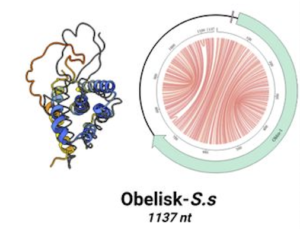 HPC: There’s a lot of attention on cannabis and CBD these days. Many aging Baby Boomers have used cannabis for decades. Does it increase risk? Or on the other hand, can cannabis-derived substances play a beneficial role?
HPC: There’s a lot of attention on cannabis and CBD these days. Many aging Baby Boomers have used cannabis for decades. Does it increase risk? Or on the other hand, can cannabis-derived substances play a beneficial role?
DB: We use CBD oil in the ReCODE protocol, especially for people who have trouble sleeping. It’s helpful and not a problem. As far as long-term use of THC, we recommend to try to minimize that. It can be problem, long-term, with memory storage. Just like everything else, use it in moderation. There’s some suggestion of a mild anti-AD effect from THC in cannabis. But we generally try to use cannabis without THC in the form of CBD oil.
HPC: According to your model, environmental toxins are implicated in the etiology of dementia. How big a factor is this?
DB: Have you seen Dr. Joseph Pizzorno’s recent book, The Toxin Solution? It goes into the things we are exposed to today, that our parents and grandparents were not exposed to. It is pretty striking. We are in a situation where we’re exposing ourselves to what I call “dementogens.” We should be aware of them, and should be able to able to protect ourselves from too much exposure.
I wrote a paper in 2016 that estimated there are at least 500,000 Americans who already have Alzheimer’s due to mycotoxins and other biotoxins, what I call Type 3 AD. That’s probably an underestimate.
When I trained in the early 1980s, I’d never heard of anyone at age 49 or 51 or 53 developing AD, unless it was a dominantly inherited form, which is only 5% of all cases. Now, we’re seeing it almost every day, women typically around the time of menopause, coming in with this toxicity-associated AD. It is really concerning. I worry about that as a coming epidemic.
HPC: What’s driving that? Are the molds changing? Are our immune systems shot? Are we less able to handle the mycotoxins? Why predominately in women?
DB: We don’t know. It appears that what happens is, you live with this stuff and you sequester it in your bones, just like you do with mercury. Then at menopause, the osteoblastic to osteoclastic ratio changes, you start releasing it and you develop symptoms of AD. We’re seeing it commonly now.
And there have been changes in the molds, too. Dr. Ritchie Shoemaker (author of Surviving Mold) has suggested that just as bacteria have adapted to our use of antibiotics, the fungi have adapted to our use of fungicides. They share plasmids.
We see the Alzheimer’s part of this, but people also get asthma, rashes, chemical sensitivities, fibromyalgia or chronic fatigue. We think these are all different diseases, but they are all related to our response to toxins.
HPC: Ketosis seems to be an important part of ReCODE. In the book, you describe a diet called “Ketoflex 12/3,” with the 12 indicating the ideal number of hours between the last evening meal and the first morning meal, and the 3 representing the hours between the last meal and bedtime. Do you recommend that people stay in constant, mild ketosis, or is it more of an on-off regimen?
DB: Either constant or in cycles—you can cycle on and off once a week.
Most people who have AD have insulin resistance. Ed Goetzl at UCSF published some beautiful papers looking at neural exosomes in the blood. He looks specifically at a molecule called IRS-1 (Insulin Receptor Substrate). If IRS-1 is signaling from insulin, you have a high degree of tyrosine phosphorylation. But if IRS-1 is turned down, if it’s resistant, then you have serine and threonine phosphorylation. So he looks at this ratio and can tell if someone is insulin resistant or sensitive. He found that 100% of people with AD are insulin resistant.
Humans were not made to consume the amount of simple carbs that we now consume. The way we’re supposed to be living, you’d have occasional exposure to carbohydrates. But most of the time you’d be out foraging and hunting, and you’d be in and out of ketosis. You wouldn’t have access to a lot of sweets. We have 24/7 access.
So, from hundreds of papers, we know this is an important contributor to cognitive decline. Within the entire ReCODE protocol, we want to get people back to a diet very low in simple carbs. And then we want to replace that with ketones. We look for a low degree of ketosis, around 0.5-2.0 millimolar. But what we’ve been finding recently is that it works better if you get between 1.0 and 4.0. People on the higher side seem to do better than those on the lower side.
This is not a meat-based ketogenic diet, by the way. This is a plant-based, whole-foods ketogenic diet.
There are 3 ways to get into ketosis. Fasting and exercise, which is the best way. But people with low BMIs just cannot do this. The second way is to supplement with MCT (medium chain triglyceride) oils. The third is to supplement with exogenous ketones—ketone esters or ketone salts. Whichever way you do it is fine, if it gets your ketones up to a reasonable range to provide support that the brain needs without causing the insulin resistance.
HPC: Going gluten-free seems to be an important part of the ReCODE strategy. Is that a general recommendation for everybody, or only for those who prove gluten-sensitive on lab tests?
DB: If you don’t know whether you’re sensitive, then you should err on the side of going gluten-free. If you want to avoid that, get a Cyrex array 2 and 3 test, to make sure you are not gluten-sensitive. As Prof. Alessio Fasano has pointed out, most people are sensitive to gluten to some degree. I’m not talking about celiac disease. But most people will have issues with things like leaky gut due to gluten. So just get off it, unless you can truly show you’re not truly sensitive. Once you start leaking stuff into the bloodstream, you have an inflammatory state, and that fuels Alzheimer’s.
HPC: Does the microbiome play a role in all of this?
DB: Yes, absolutely. Part of it has to do with microbes associated with gut leak. But beyond that, there are microbiome profiles associated with insulin resistance, and obesity, and depression, and chronic inflammation. So part of this protocol is about prebiotics and probiotics. But only after we’ve made sure that the gut is healed. We want to make sure that we have a non-leaky gut first. Then we want to make sure we’ve optimized the microbiome.
HPC: You mentioned depression. Are people who experience depression and suicidality predisposed to dementia? Is there a connection between programmed cell death and “programmed self death?”
DB: Certainly there is a relationship between depression and AD. What we see from our side, looking at people with cognitive decline, is that the Type 3 AD is overwhelmingly associated with depression. The Type 1s and 2s do not often present with depression.
Type 3 very commonly starts with depression, because you have HPA axis dysfunction. Often these people get misdiagnosed with depression, and then later realize it is more than just depression. They’re actually becoming demented. They often have systemic inflammation, which is associated with depression. There are neurotransmitter changes associated with depression. So these things are intimately interconnected.
“Programmed self death” is an interesting term. We have had people who will simply not do the right things after we say, “Look, here’s what you have, and here’s what you can do to get better.” We had one woman who did improve after the first several months, and then she just said, “I don’t want to do this, I don’t want to do that.” When we got to the bottom of it, her granddaughter—her pride and joy–had left, gone away to college. The woman just wanted to die.
HPC: Botanical medicines play a significant role in ReCODE. In the book you recommend a number of herbs including Ashwaghanda (500 mg twice daily) to  reduce amyloid; Bacopa ( 250 mg twice daily) to raise cholinergic function; Gotu Kola (500 mg, twice daily) to improve focus, and several others that can be useful depending on what type of AD someone has. I’m particularly intrigued by whole fruit coffee extract (WFCE), aka “coffee berry.”
reduce amyloid; Bacopa ( 250 mg twice daily) to raise cholinergic function; Gotu Kola (500 mg, twice daily) to improve focus, and several others that can be useful depending on what type of AD someone has. I’m particularly intrigued by whole fruit coffee extract (WFCE), aka “coffee berry.”
DB: Whole fruit coffee extract is very promising. I learned about it from Dr. David Perlmutter. It increases brain-derived neurotrophic factor (BDNF), which is possibly the most important trophic factor for the brain, especially in cognitive decline. So we’re enthusiastic. We suggest it as part of the protocol. The molecular mechanisms have not yet been worked out. We don’t know how this is doing it but it clearly increases BDNF and seems to have a positive effect. So it’s a very nice thing to have.
In general we’re always looking for things that will help people. That’s one that seems to be very helpful.
HPC: ReCODE offers tremendous hope in a situation that most people reflexively see as hopeless. But it is quite complex. How do you plan to operationalize ReCODE, so it will be more widely accessible?
DB: This has definitely been a problem. As long as a doctor understands how to look for root causes and can spend enough time, people will do very well. But that is definitely a challenge.
So first, we train a network. We’ve now trained (through the Bredesen’s company, MPI Cognition, and the Institute for Functional Medicine) over 1,000 doctors from 10 different countries and all over US. And we’ve had over 2,000 patients on the protocol. These doctors learn and then continue to teach.
The second thing, in order to optimize care, we should all have access to computer-based algorithms that become our assistants. Just like you would have an intern, or a coordinator, or an LPN or RN, you should also have computer- based algorithms to optimize the evaluation and treatment of each complex chronic illness. This is not simple, that’s why these algorithms can be so helpful.
HPC: Have you already created algorithms for AD treatment?
DB: Yes. We call it the RECODE Report. It looks at 150 different inputs– different lab data, different ratios. It subtypes for you. So you can say, “This person is mainly an atrophic type, so I really need to optimize their trophic support.” Or, “This person is primarily a toxic type, and I need to look more closely at mycotoxins.” It will generate an initial (intervention) program. We’ve already generated algorithms for AD, and we’re now generating them for multiple other neurodegenerative diseases.
HPC: Do you envision someday a network of ReCODE clinics around the country, almost like a franchise model?
DB: Yes, absolutely. We’ve been approached by people who want to set up that sort of thing. So we are actively in discussions to do exactly that. Right now, there are already several hundred doctors who are using the protocol. We really want to optimize and simplify it, to make it accessible to everybody. The goal here is to reduce the global burden of dementia, and then extend this model to other neurodegenerative diseases, and ultimately to all chronic illnesses.
END







